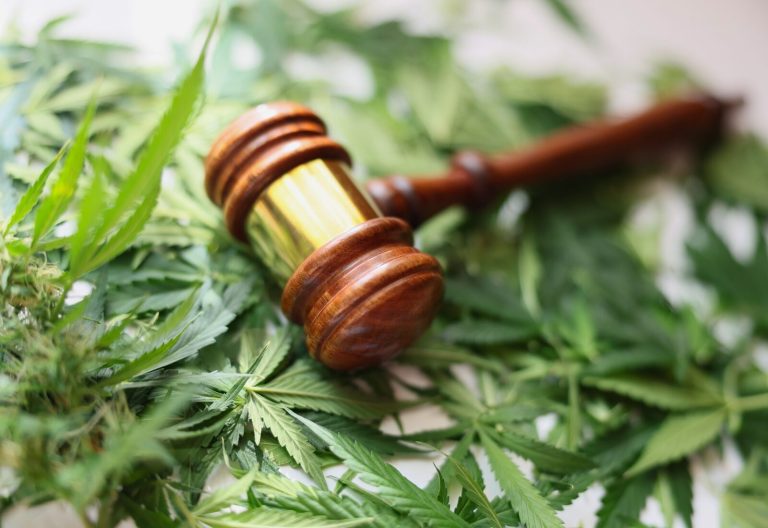The Ninth Circuit Court of Appeal has reinstated a civil rights lawsuit against Humboldt County, California, that challenges the county’s practices in imposing punitive daily fines. It is the first time a federal appellate court has weighed in on local government’s enforcement of code violations involving cannabis farms.
The Court of Appeal decision
The decision, in Thomas v. County of Humboldt, comes after years of complaints by cannabis cultivators that local governments impose unfair fines for technical violations at licensed farms. That counties and municipalities have adopted and are enforcing large fines involving licensed properties is one of many reasons why increasing numbers of farms have given up their licenses and shut down completely or returned to the illicit market. This is hurting state efforts to bolster the legal market and suppress the illicit market for cannabis.
Lessons for industry and regulators
A takeaway from the decision is that local governments need to keep the goal of remediation in mind in establishing penalties, must be more reasonable in allowing cultivators to fix violations, and more flexible in decisions to impose fines and settling disputes. The decision should motivate county and city attorneys, and cannabis licensees and applicants, seek assistance from a mediator with expertise in the cannabis market and regulation. The courthouse might not now be as friendly a venue for local government as it has been in the past.
Most cannabis businesses that run afoul of local codes pay the penalties, no matter how unfair they might seem, because they can’t afford a long legal battle and the administrative and court processes are tilted against the property owner. Administrative hearing officers routinely uphold notices of violations and the penalties imposed by code enforcement officers. Writs of mandate brought against local government in state court, particularly in smaller counties, are extremely difficult to win.
Background on the Thomas case
What has made the Thomas case viable is that several plaintiffs banded together in a civil rights class action in federal court under 42 U.S.C. § 1983, alleging that Humboldt County’s penalties for cannabis abatement violate the Eighth Amendment’s Excessive Fines Clause.
Humboldt County established a schedule of daily fines for illegal cannabis cultivation of up to $10,000, with a minimum of $6,000. Upon receiving a notice of violation from the county, the party has 10 days to abate all violations, subject to an appeals process, during which penalties continue to accrue. Violations included not just the illegal cultivation of cannabis itself, but also any other violation that facilitates illegal cultivation of cannabis. The Thomas plaintiffs contended that the county issues violation notices with hefty fines based on imprecise data (such as satellite and drone photos) and for code violations that originated with previous property owners.
The lower District Court dismissed the lawsuit on the basis that the plaintiffs lack legal standing, because they had not, at the time of suit, paid any penalties. But the Ninth Circuit held that the plaintiffs had concrete injuries, providing standing, because they suffered emotional distress and had incurred expenses with engineers and attorneys as they attempted to abate the alleged violations and defended themselves in hearings.
Getting to the merits of the lawsuit, the Ninth Circuit held that the plaintiffs had plausible claims under the Excessive Fines Clause because the penalties were punitive, not remedial. The Ninth Circuit agreed with the plaintiffs that the fines were unconstitutionally excessive because (1) the notices were vague, often inaccurate, or involved violations that pre-dated the plaintiffs’ occupation of their properties; (2) lesser penalties could accomplish the same health and safety goals; and (3) the alleged offenses caused no harm beyond a technical lack of compliance with the county’s permitting regulations.
Humboldt provides for an administrative appeal before a hearing officer who determines whether a violation has occurred or continues to exist. The hearing officer can only reduce the penalty for a violation in limited circumstances and cannot reduce it to less than $6,000 per day. Although the Ninth Circuit did not explicitly address it in the Thomas decision, a property owner in most circumstances also can be forced to pay the county or municipality’s abatement costs and legal expenses — including those incurred in a subsequent writ of mandate proceeding in state court. The Ninth Circuit agreed that the Thomas plaintiffs had come under:
“immense pressure to settle due to the County’s issuance of ruinous fines, . . . its undue delay in providing hearings, its denial of permits while abatements are pending, and the cost the County imposes to prove one’s innocence.”
The Ninth Circuit found that Humboldt County’s fines were “clearly punitive, not remedial as argued by the County.” The fines could reach millions of dollars, and, in the case of one plaintiff, the fines dwarfed the value of her property. The appellate court was untroubled by the involvement of cannabis, which remains unlawful under the federal Controlled Substances Act:
“[I]t seems clear to us that lesser penalties could accomplish the same health and safety goals,” and “the offenses here have caused no harm beyond a technical lack of compliance with the County’s cannabis permitting regulations.”
The Thomas plaintiffs’ strategy pays off
The Thomas plaintiffs’ strategy of going to federal court was fraught, because the court could have just as easily declined to hear the matter under the illegality doctrine, but it paid off here; the Ninth Circuit not only considered the case but also disregarded the problem of whether the plaintiffs were entitled to any remedy under federal law.
The Ninth Circuit concluded by acknowledging that local government is “often at the forefront of addressing difficult and complex issues,” but it should use “flexibility” in decision making and “cannot overstep its authority and impose fines on its citizens without paying heed to the limits posed by the Eighth Amendment.”
Note: This post was first Updated January 6, 2025 on the Alger ADR Blog
